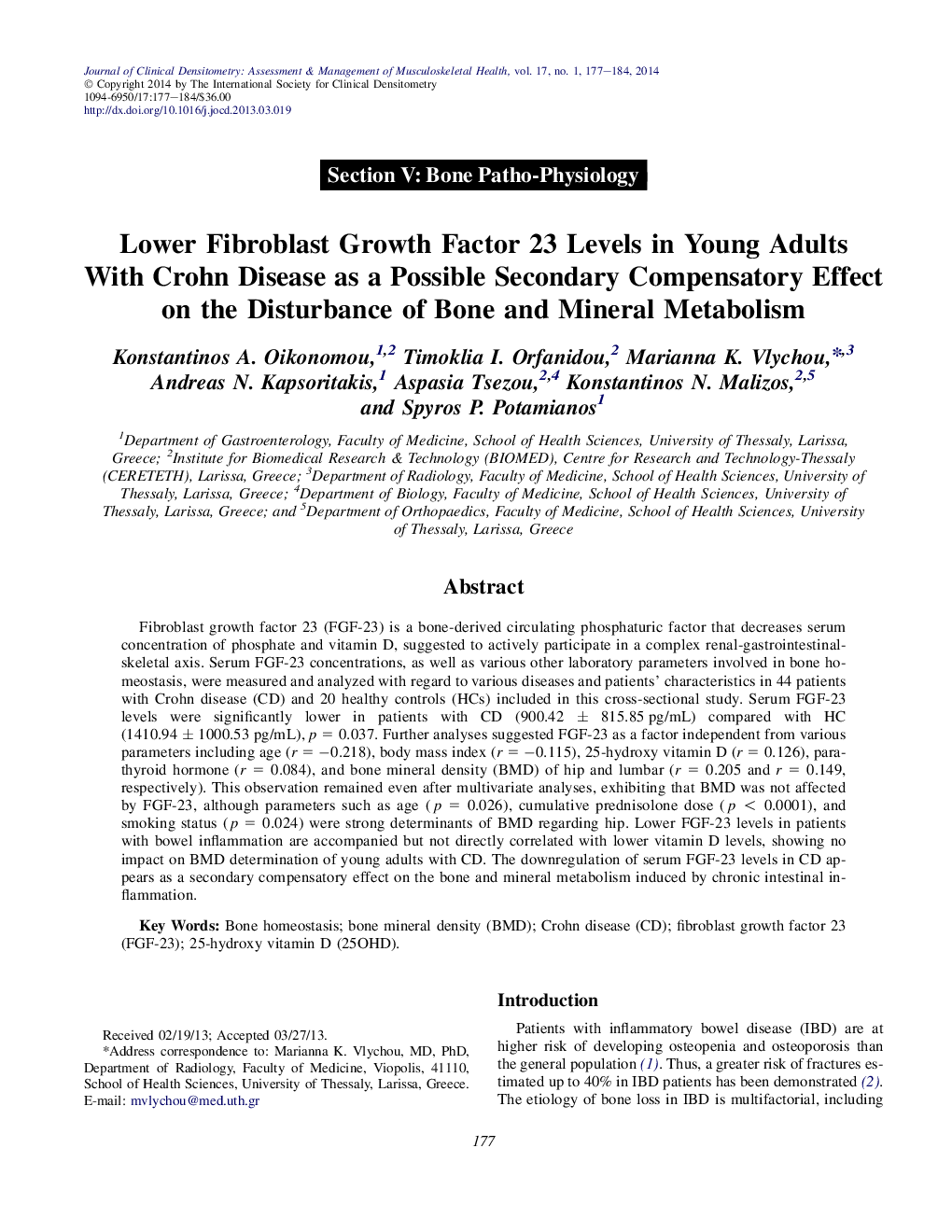| Article ID | Journal | Published Year | Pages | File Type |
|---|---|---|---|---|
| 10168094 | Journal of Clinical Densitometry | 2014 | 8 Pages |
Abstract
Fibroblast growth factor 23 (FGF-23) is a bone-derived circulating phosphaturic factor that decreases serum concentration of phosphate and vitamin D, suggested to actively participate in a complex renal-gastrointestinal-skeletal axis. Serum FGF-23 concentrations, as well as various other laboratory parameters involved in bone homeostasis, were measured and analyzed with regard to various diseases and patients' characteristics in 44 patients with Crohn disease (CD) and 20 healthy controls (HCs) included in this cross-sectional study. Serum FGF-23 levels were significantly lower in patients with CD (900.42 ± 815.85 pg/mL) compared with HC (1410.94 ± 1000.53 pg/mL), p = 0.037. Further analyses suggested FGF-23 as a factor independent from various parameters including age (r = â0.218), body mass index (r = â0.115), 25-hydroxy vitamin D (r = 0.126), parathyroid hormone (r = 0.084), and bone mineral density (BMD) of hip and lumbar (r = 0.205 and r = 0.149, respectively). This observation remained even after multivariate analyses, exhibiting that BMD was not affected by FGF-23, although parameters such as age (p = 0.026), cumulative prednisolone dose (p < 0.0001), and smoking status (p = 0.024) were strong determinants of BMD regarding hip. Lower FGF-23 levels in patients with bowel inflammation are accompanied but not directly correlated with lower vitamin D levels, showing no impact on BMD determination of young adults with CD. The downregulation of serum FGF-23 levels in CD appears as a secondary compensatory effect on the bone and mineral metabolism induced by chronic intestinal inflammation.
Related Topics
Health Sciences
Medicine and Dentistry
Endocrinology, Diabetes and Metabolism
Authors
Konstantinos A. Oikonomou, Timoklia I. Orfanidou, Marianna K. Vlychou, Andreas N. Kapsoritakis, Aspasia Tsezou, Konstantinos N. Malizos, Spyros P. Potamianos,
